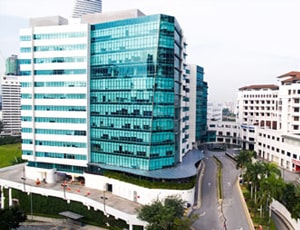Hormonal therapy is a type of treatment option which the doctor uses to manage various types of cancers. The doctor uses this therapy in those types of cancers that are sensitive to alteration in levels of hormones. Such cancer includes breast cancer, prostate cancer, ovarian cancer, and endometrial cancer. Hormonal therapy is also known as endocrine therapy, hormone withdrawal therapy, or hormone manipulation therapy. It is important to note that hormonal replacement therapy is not a hormonal therapy. The doctor does not recommend hormone replacement therapy for the management of cancer. Replacement therapy is to treat various post-menopausal symptoms such as hot flashes.
Hormonal therapy uses various means to reduce or prevent the secretion of certain hormones resulting in slowing or preventing the growth of cancer cells. Oncologists may use this therapy along with other treatment options, including radiation therapy or surgery. The doctor may use hormonal therapy before radiation therapy to shrink the size of the tumor so that radiation therapy is given in a limited area, thereby reducing the side effects. Similarly, hormonal therapy is given before surgical removal of the tumor to minimize the surgery-related complications. Oncologists may also use hormonal therapy along with the main therapy to minimize the risk of cancer recurrence.
You can expect the following before hormonal therapy:
There are various types of hormone therapy. The type of hormonal therapy depends upon the type and severity of cancer. The types of hormonal therapy are:
Various factors may affect your recovery after hormone therapy. These are side effects, type of hormone therapy, and health status. Your healthcare team will provide certain instructions about your recovery that you need to follow. The staff may call you for a routine visit to determine the response and tolerability of hormonal therapy. You may be able to manage most side effects through medications.

Istanbul, Turkey
Founded in 1999, Medicana Camlica is a specialty hospital of the Medicana Group which is well known ...more
![]() Private Driver / Limousine Services
Private Driver / Limousine Services
![]() International Cuisine
International Cuisine
![]() Phone in Room
Phone in Room
![]() Online Doctor Consultation
Online Doctor Consultation

Kuala Lumpur, Malaysia
History Parkway Pantai Hospital in Kuala Lumpur, Malaysia is operating under the Parkway Pantai gro...more
![]() Airport Transfer
Airport Transfer
![]() Choice of Meals
Choice of Meals
![]() Interpreter
Interpreter
![]() SIM
SIM

Delhi, India
Equipped with more than 50 specialty institutes, Indraprastha Apollo was started with the vision of ...more
![]() Private Driver / Limousine Services
Private Driver / Limousine Services
![]() International Cuisine
International Cuisine
![]() Phone in Room
Phone in Room
![]() Online Doctor Consultation
Online Doctor Consultation